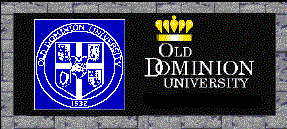

CS712/812 Stochastic Modeling
Spring 2020
Instructor: Professor Stephan Olariu
Office: E&CS 3315
Phone: 683-3915
Course Description: Stochastic processes are ways of quantifying the dynamic relationships of sequences of random events. Stochastic models play an important role in elucidating many areas of science and engineering. These models can be used to analyze the variability inherent in biological processes, in computer science phenomena, and in the complexities of social interactions, to name just a few. The first main objective of this course is to expose the participants to standard concepts and methods of stochastic modeling. The second main goal of the course is to illustrate the rich diversity of applications of stochastic modeling. The approach is hands-on, where the students will learn stochastic modeling by applying theoretical modeling concepts to a host of problems arising in applications.
Motivation: In undergraduate computer science courses, even in the most advanced ones, computer science phenomena are being looked at either deterministically or, at best, from a simplistic ``average case'' perspective. This approach flies in the face of the fact that virtually all phenomena underlying computer science are stochastic in nature. It follows that the student walks away with an incomplete and often distorted understanding of many fundamental computer science concepts. And yet, the analysis of a good many of these phenomena is within reach, assuming a reasonable exposure to probability theory, stochastic processes and queueing theory. To the best of this instructor's knowledge, no undergraduate course in probability theory covers all the topics above with the needs of a Modeling and Simulation graduate student in mind. There is a huge body of knowledge concerning probability theory, stochastic processes and queueing theory. The main challenge and stated goal is to select those topics that will equip the participants with the basic tools necessary for the stochastic modeling of phenomena arising in computer science, engineering, economics, biology, etc.
Intended audience: In an ideal world, the students taking this class should have been exposed to: advanced calculus at a suitable level and probability theory at advanced undergraduate level. In a less-than-perfect world, the students often lack proficiency in one or more of the above areas. With this in mind, the first part of the course (roughly, four weeks) will be devoted to a review of relevant topics in probability theory. While the course is intended to be mathematically correct, rigor is occasionally sacrificed ion the altar of simplicity: this is to say, proofs that rely on measure-theoretic concepts will be systematically omitted and/or replaced by intuitively satisfying arguments.
Material: Tentative topical coverage
Text: No textbook will be used in this class. However, the following textbook is recommended to those who are more than casualy interested in learning about stochastic processes: Introduction to Stochastic Modeling, by Mark A. Pinsky and Samuel Karlin, Fourth Edition, Elsevier, 2011.
Prerequisite: Graduate standing in Computer Science, Modeling and Simulation, Mathematics, Computer Engineering, Mechanical Engineering, etc.
Grading Scheme:
Office Hours: TBA
The Office of Educational Accessibility is located at 1021 Student Success Center and their phone number is (757)683-4655. Additional information is available at the OEA website: http://www.odu.edu/educationalaccessibility/
Back to Dr. Olariu's Home Page